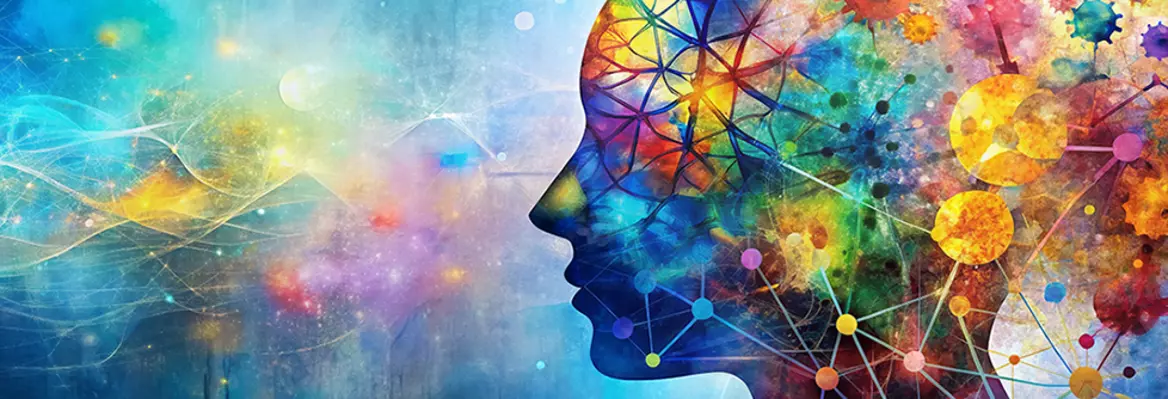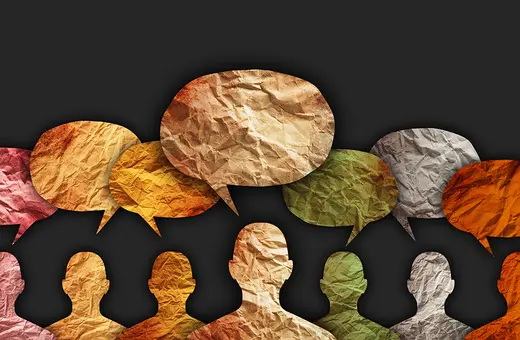We tend to think of language as a transparent tool—a neutral medium for expressing thoughts and describing reality. While philosophers have (more or less) come to agree that “the map is not the territory” more recent thinkers have argued that language does play a fundamental role in shaping our perception of the world and our notion of self. By drawing parallels between language loss from brain injuries and the experiences reported during deep meditation or psychedelic states, UCL neuroscientist Jeremy I Skipper argues language creates an altered state of consciousness. Only by losing language can we start to dismantle the scaffolding that supports our notion of the world and the self.
Altered articulation
Contemplate this self-report, recounting the experience of a “non-ordinary” or “altered state of consciousness”:
... my brain chatter began to disintegrate ..., my consciousness soared into an all-knowingness, a “being at one” with the universe ... I no longer perceived myself as a whole object separate from everything ... I retained only a vague idea of who I was ... I had stepped beyond my perception of myself as an individual ... My entire self-concept shifted as I no longer perceived myself as ... an entity ... separated ... from the entities around me.
The following is a similar description from another person:
I had a nothing mind, a flotsam mind. I was incredibly focused on the present, with very little awareness or interest in my past or future. My entire environment felt interconnected, like cells in a large, breathing organism. I felt less like myself and more like everything around me.
What caused these altered states? If you have tried an "heroic" amount of magic mushrooms or other psychedelics, the accounts of interconnectedness and loss of “self” might feel familiar. If you have not, you nonetheless might have experienced “oceanic boundlessness” and “ego dissolution” by other means. These include advanced meditation, breath work, dreams, flow and peak states, mystical awakening, and near-death and out-of-body experiences.
You might be surprised to discover that the above reports were given by individuals who had severe brain injuries that resulted in loss of language. Both recovered speech and wrote beautiful books describing their experiences of living in a language-less world. At the time of their injuries, one was a renowned neuroscientist and the other an actor. Why would these “strokes of insight” feel at home in the Erowid Psychoactive Vaults, or Subreddit communities sharing psychedelic “trip reports” or discussing the “jhanas” (advanced meditative states that can occasion “nondualism”)?
___
"I did not know that I am. I lived in a world that was no world. I cannot hope to describe adequately that unconscious, yet conscious time of nothingness."
___
An intimation comes from Helen Keller, the deaf-blind author, educator, humanitarian, and disability-rights pioneer. Keller did not learn a language until middle childhood. She writes of her experience preceding this education in “Before the Soul Dawn”:
Before my teacher came to me, I did not know that I am. I lived in a world that was no world. I cannot hope to describe adequately that unconscious, yet conscious time of nothingness. I did not know that I knew aught or that I lived or acted or desired. Since I had no power of thought, I did not compare one mental state with another. When I learned the meaning of “I” and “me” and found that I was something, I began to think. Then consciousness first existed for me.





















Join the conversation